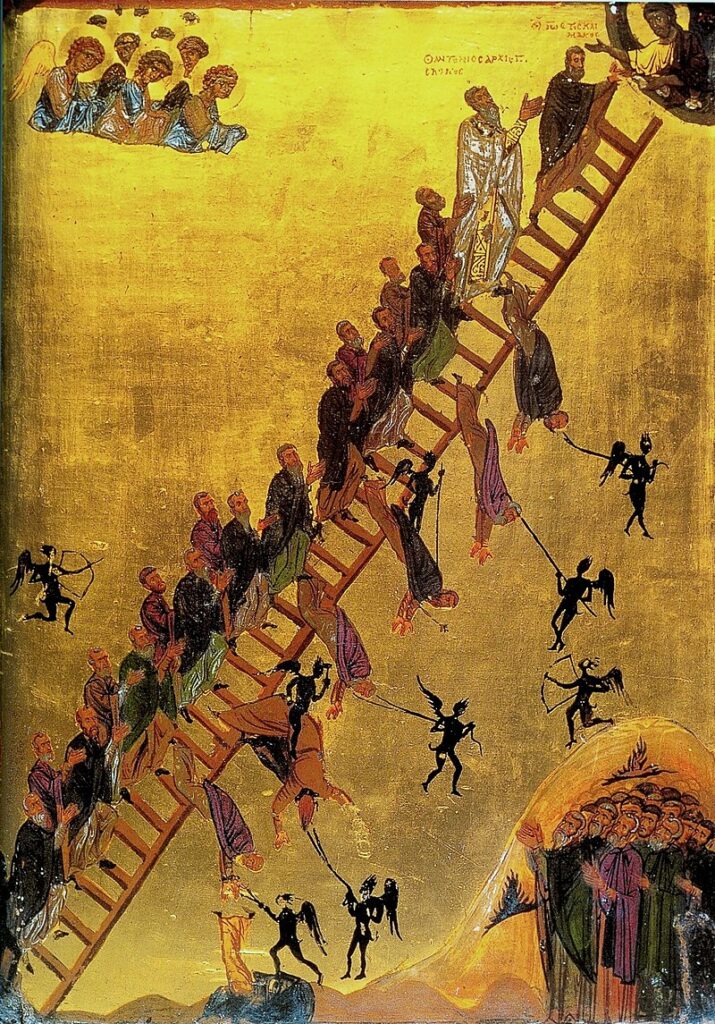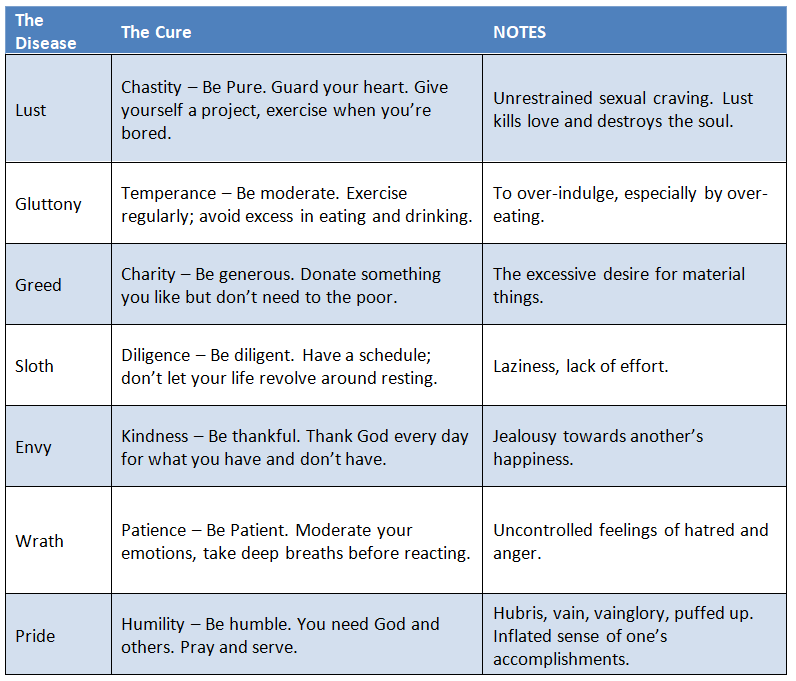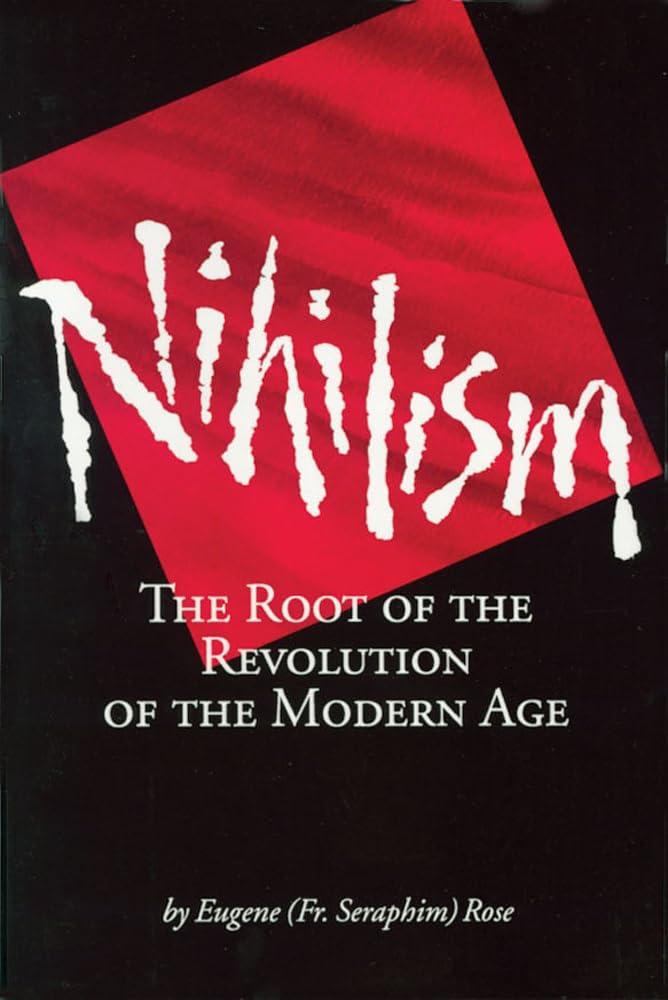by DAVID BROWN | CLEARNFO.com | January 31, 2024

The Ladder of Divine Ascent | by St. John Climacus (579 – 649) died ~age 70; born in Syria
The Ladder of Divine Ascent
Step 1: On Renunciation of the world (7)
Step 2: On detachment (12)
Step 3: On exile of pilgrimage (14)
– Concerning dreams that beginners have (17)
Step 4: On blessed and ever-memorable obedience (18)
– About a robber who repented (20)
– About Isidore (23)
– About Laurence (24)
– About a bursar (24)
– About Abbacyrus (25)
– About Macedonius the archdeacon (26)
– About a certain other brother (27)
– About Saint Menas (27)
– The first snare (31)
– The second snare (32)
– About Saint Acacius (37)
– About John the Sabbaite, or Antiochus (38)
Step 5: On painstaking and true repentance which constitute the life of the holy convicts; and about prison. (41)
Step 6: On remembrance of death. (49)
Step 7: On mourning which causes joy. (52)
Step 8: On freedom from anger and on meekness. (59)
Step 9: On remembrance of wrongs. (63)
Step 10: On slander or calumny. (65)
Step 11: On talkativeness and silence. (67)
Step 12: On lying. (68)
Step 13: On despondency. (69)
Step 14: On the clamorous, yet wicked master – the stomach. (70)
Step 15: On incorruptible purity and chastity to which the corruptible attain by toil and sweat. (74)
Step 16: On love of money or avarice. (85)
Step 17: On poverty that hastens heavenwards (86)
Step 18: On insensibility, that is, deadening of the soul and the death of the mind before the death of the body. (87)
Step 19: On sleep, prayer, and psalm-singing in chapel. (89)
Step 20: On the bodily vigil and how to use it to attain spiritual vigil and how to practice it. (90)
Step 21: On unmanly and puerile cowardice. (91)
Step 22: On the many forms of vainglory. (93)
Step 23: On mad pride, and, in the same Step, on unclean blasphemous thoughts (97) – – Concerning unmentionable blasphemous thoughts (100)
Step 24: On meekness, simplicity, guilelessness which come not from nature but from habit, and about malice. (102)
Step 25: On the destroyer of the passions, most sublime humility, which is rooted in spiritual feeling. (104)
Step 26: On discernment of thoughts, passions and virtues. (112)
– On expert discernment (123)
Brief summary of all the previous steps (132)
Step 27: On holy solitude of body and soul. (136)
– Different aspects of solitude and how to distinguish them (139)
Step 28: On holy and blessed prayer, mother of virtues, and on the attitude of mind and body in prayer. (145)
Step 29: Concerning heaven on earth, or godlike dispassion and perfection, and the resurrection of the soul before the general resurrection. (151)
Step 30: Concerning the linking together of the supreme trinity among the virtues. (153)
A BRIEF EXHORTATION SUMMARIZING ALL THAT HAS BEEN SAID AT LENGTH IN THIS BOOK (157)
by St. John Climacus (579 – 649) died ~age 70; born in Syria



